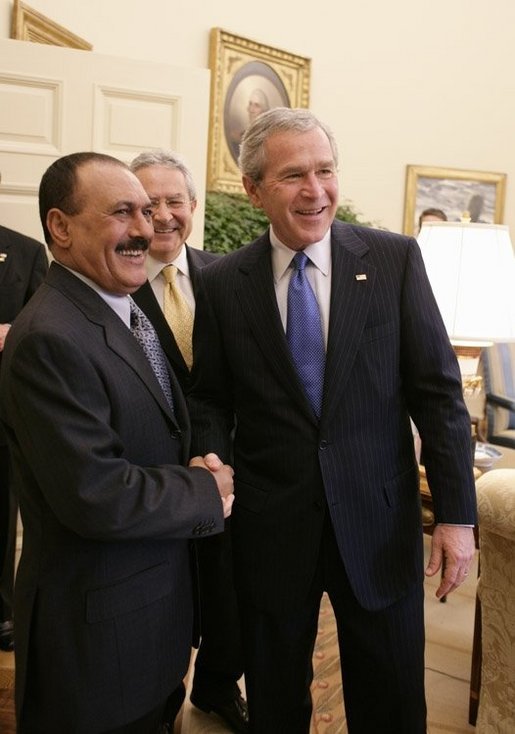
The government in Yemen stonewalls after the attack on the USS Cole (see October 12), thereby confusing the collection of “evidence” that al Qaeda is responsible and impeding retaliation. There are many reasons—the election voting standoff between Bush and Gore, an impending change in administrations, disbelief in al Qaeda, and skepticism about the value of cruise missile attacks—that also ultimately stand in the way of an American “response,” but Yemen’s foot-dragging, and even lying, has a major impact.
Within the first weeks after the Cole attack, the Yemenis arrest two key figures in the attack. But they forbid the FBI investigators on the ground from participating in the interrogations. President Clinton, Secretary of State Madeleine Albright, and CIA Director George Tenet all intervene to try to help but Yemen doesn’t budge. Ultimately, the 911 Commission concludes that because information from the suspects comes in that is secondhand, the U.S. could not make its own assessment of its reliability (911 Commission, p. 192).
Yemen would continue to be a haven for al Qaeda, even after 9/11. It would take the Arab Spring—and not anything about the American global war on terror—to finally unseat the first and only president of the country, Ali Abdullah Saleh. That has been followed by a never-ending civil war and Saudi (and Gulf state) intervention, turning the country into a humanitarian disaster and a basket case. Saleh was killed by a sniper in December 2017.